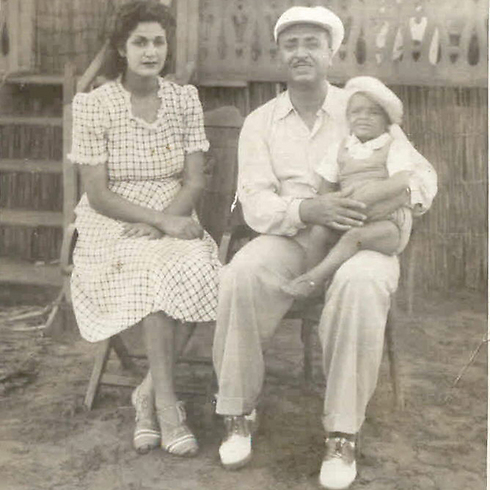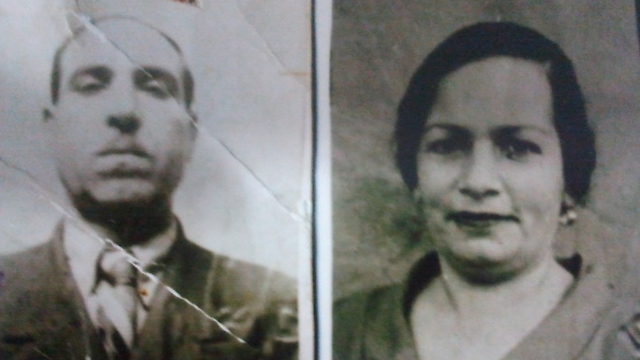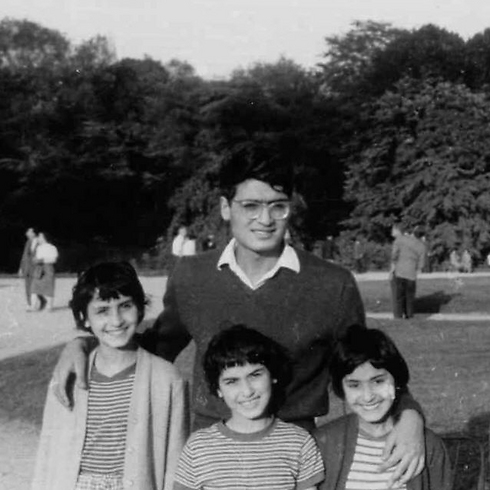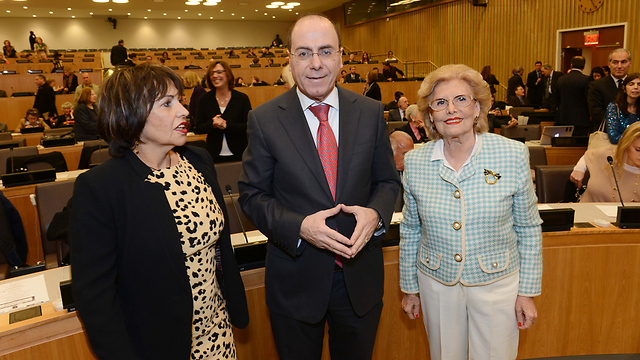Echoing the claims requested by many Sephardic Jews attempting to find balance between past grievances & future prospects, Minister Silvan Shalom said the matter of paying compensation to Jews from Arab countries who were forced to leave behind homes, lands, and businesses in 1948, ‘We should get what we deserve’.
By Itay Blumenthal
A prominent minister and senior politician of Sephardic descent praised Israel’s bid to achieve refugee status for Jews who fled their Arab nation homes on the eve of the State’s foundation, calling it a “rectification of an historic injustice,” echoing claims made other Sephardic Jews.

Cohen family on vacation in Ras al Bar, Egypt – Photo: courtesy of the family
The Cohen family left behind a residential building in Cairo while the Kalif family were forced to abandon a number of apartments and stores which were later nationalized by the Iraqi government. Decades have passed since they moved to Israel, and until it was revealed to be part of the framework peace deal being hatched between the Palestinians and Israelis, the idea of compensating Jews who fled Arab nations was a solely theoretical one, shadowed by the issue of Palestinian refuges.
Yaakov Cohen, 72, was driven out of Cairo with his family in 1956, in wake of the Sinai War. “My father was a wealthy man. He was a goldsmith, had a workshop and traded in gold. He had three whole buildings in Cairo, and some 300 kg of gold bars, because Egyptians back then didn’t trust banks.
“When we were expelled, each person was allowed to carry one suitcase. My mom tried to pass jewelry though customs and they ripped it off her neck. My family got $5,000 in compensation, the buildings were sold and the assets were frozen, but when my mom returned in 77′ to find out the account balance the Egyptians gave her $200,” Cohen told Ynet, expressing support of the compensation idea.
“Giving the Palestinians money instead of lands is a very good idea for Israel, and if we can get something as well then whatever will come is welcome. I support this as a Likud voter.”

The Kalifs
Tikva Kalif, 76, made her aliya to Israel in 1951 together with her parents and six brothers and sisters from Iraq. “We left with only our clothes,” she recalled.
“I remember my mother taking down two shirts and two pairs of pants for each of us. They (the Iraqis) took the rest. We were well-established, we had no lack in money. My dad had two stores, and one day he came and saw a ‘closed’ sign had been put on one them. The government had taken them.”

The Kalif family in Paris before move to Israel – Photo courtesy of family
Years later, she said, the family attempted to get compensation for their lost property, but to no avail. “I don’t believe we’ll get compensations,” she admitted, “but I don’t care if they give the Palestinian refuges money so they will leave us alone, but its doesn’t sound really serious to me.”
National Infrastructures, Energy and Water Minister Silvan Shalom addressed the reports regarding the framework agreement between Israel and the Palestinians, in which, for the first time, there is a reference to the rights of Jews from Arab countries as refugees that need to be compensated for property that was left behind.
“This is rectification for an historic injustice,” said Minister Shalom Saturday evening.
Shalom immigrated to Israel from Tunisia with his family in 1959, and has been an advocate for compensation for Jews from Arab countries over the years.
Shalom estimated that there are about one million Jews who were forced to flee Arab countries.
“When I was a month old, my family ran away from Tunisia to Israel,” Shalom said. “My parents told the authorities and their friends they were going on a short family visit to Marseilles, and never returned.
“We couldn’t announce that we were leaving and sell our assets. We waited in a transition camp in Marseilles for about two months, until a ship took us to Israel. There are thousands of families who escaped in the same way we did. About a million Jews from Arab countries and Iran were neglected for years and left untreated.”
Shalom’s parents were members of the Dror and Betar youth movements and decided to make aliyah for Zionist purposes, but according to him, this fact should not harm their entitlements to compensation.
“There are Jews who made aliyah because they were abused and there are some who did so for pure Zionist motives,” he said.
“Still, when we are talking about what was left behind, there is merit to compensation. It is property, real estate and businesses that were left behind because there was no choice, it couldn’t have been sold. Now we are demanding to get what we deserve.”
Shalom took part in a conference that was held in the UN headquarters in New York two months ago titled “Justice for Jews from Arab Countries.”

Minister Shalom at the “Justice for Jews from Arab Countries” UN conference – Photo: Shahar Azran
Conference participants had a clear message to the international community:
“We constantly hear about the suffering of the 700,000 Palestinian refugees, but not one word was said about nearly one million Jews who fled Arab countries.”
Although it seems that no Arab country would agree to compensate those who were forced to move to Israel, Jewish community representatives have begun in recent years to collect testimonies and documentation of assets, real estate and land that was left behind and belonged to Jews who came to Israel.
Speaking to Ynet, Shalom said this is a complicated issue that should be resolved immediately.
“We only started listing the assets in question and unfortunately as time goes by and people pass away, there is no one to point out where the assets and property were. The State of Israel also took part in this effort, and recently began documenting the assets though the Pensioner Affairs Ministry.”
The value of the property, which according to Jewish organizations’ estimations stands at over $6 billion, does not include a demand for ownership.
“In the past, there have been attempts by all the Israeli administrations to silence the issue, claiming that if we demand to get the property of Arab Jews, the Palestinians will demand to get their property,” Shalom said.
“We are not demanding ownership of the assets, only compensation for them. Even in the framework of the negotiations there is no Palestinian demand for assets, only compensation. No one will see them physically return to their property.”
Gilad Morag and Shahar Chai contributed to this report.
View original Ynet publication at: http://www.ynetnews.com/articles/0,7340,L-4483550,00.html






 Israeli New Shekel Exchange Rate
Israeli New Shekel Exchange Rate